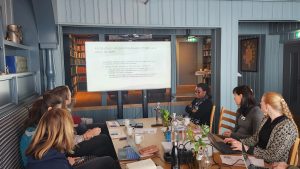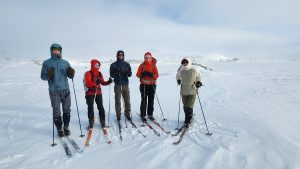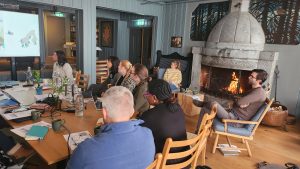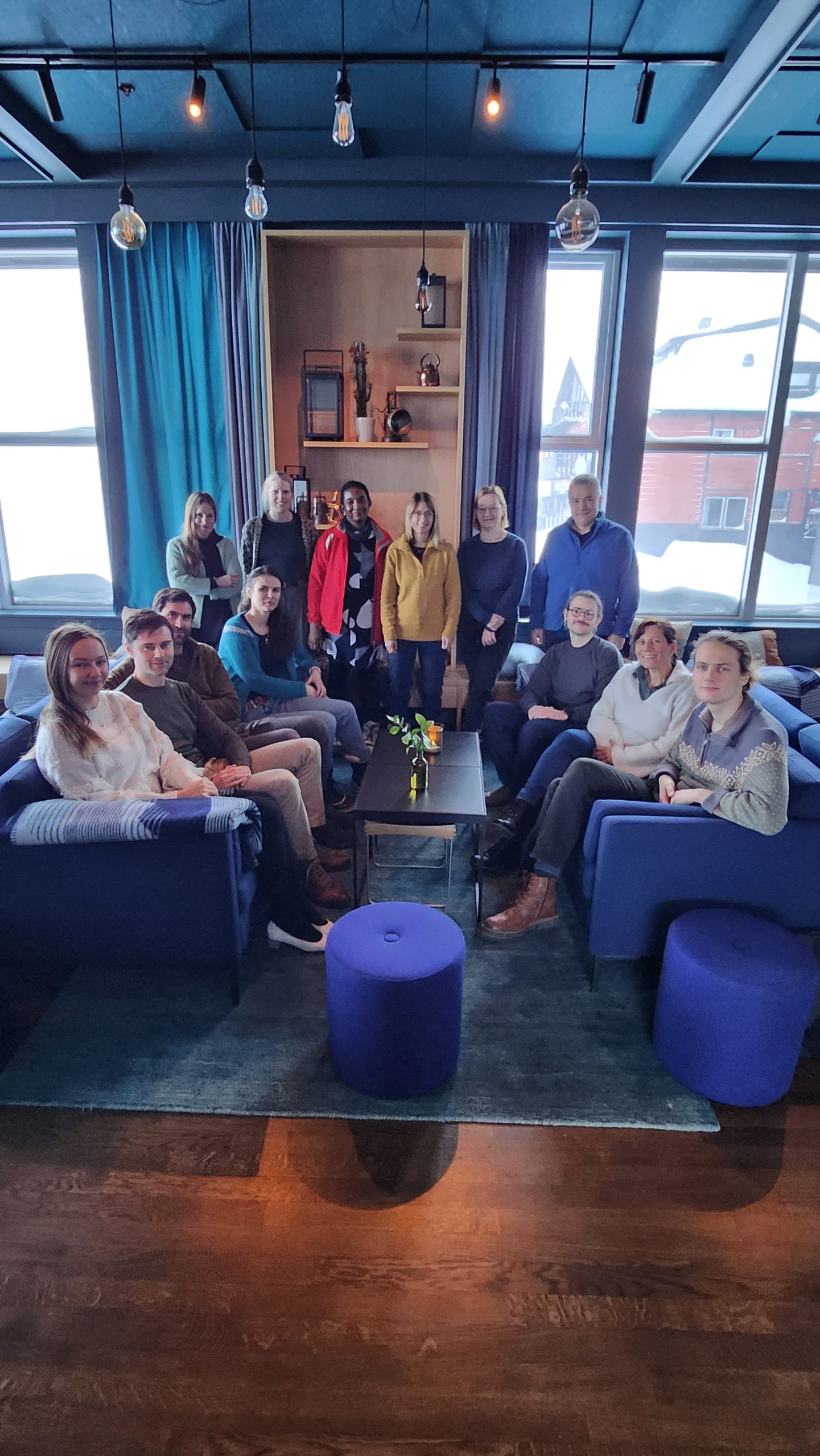From January 17-19, CAMRIA organized an engaging seminar that delved deep into the world of environmental and patient microbiome clinical studies. The agenda spanned a spectrum of topics, encompassing sampling and bioinformatic themes, resistome, and methodological nuances, all illustrated with compelling examples drawn from the participants’ projects.
At this event, participants from diverse backgrounds came together, including members of the CAMRIA team, the Centre for New Antibacterial Strategies (CANS), Antimicrobial Stewardship in Hospitals, and the Resistance Selection and Transfer in a One Health Context (STRESST) project, as well as invited international guests. Despite facing initial travel challenges caused by heavy snowfall in the region, the team persisted and eventually arrived at their destination, immersing themselves in captivating scientific discussions.

The inaugural scientific session began with a welcome from CAMRIA’s leader, Nina Langeland, University of Bergen (UiB), followed by a presentation by Adriana Krolicka from NORCE. Adriana shed light on a Nordic wastewater-based antimicrobial resistance surveillance network and an integrated digital platform. Next, Randi Jacobsen Bertelsen of the UiB delved into environmental samples for AMR surveillance in the Nordic countries, emphasizing sampling devices and sample types. Bente Sved Skottvoll, a PhD student from her project team at UiB, shared her research findings on AMR in population-based samples from Norway, Estonia, and Australia. Finally, Sabrina Moyo (UiB), representing STRESST, presented intriguing progress and insights from the project.

After a short break, during which some ventured out to embrace the winter chill with a skiing trip, while others enjoyed snowshoeing, the participants gathered once again for another research session.
The session started with an online presentation by Adam Roberts from the Liverpool School of Tropical Medicine (LSTM), who shared valuable insights and context related to the STRESST project’s research. Following that, Veronika Pettersen, from The Arctic University of Norway (UiT), provided the audience with valuable insights into her research on the dynamics of the early-life gut resistome and mobilome. Wrapping up the day’s presentations, Patrick Munk from the Technical University of Denmark introduced us to the Flankophile tool and network analyses of co-occurrence in longitudinal data. These engaging discussions continued over dinner, rounding off the day on an intellectually enriching note.

The event’s final day was equally productive. Veronika Pettersen presented once more, this time on Quantitative Microbiota Profiling. This was followed by Iren Høyland Löhr from Stavanger University Hospital (SUS), who provided pertinent insights into gut and airway microbiome profiling and resistome analysis in clinical studies. After a brief coffee break, Kenneth Lindstedt, a colleague from UiT, shared his research on Human gut colonization by the Klebsiella pneumoniae Species Complex, focusing on duration, dynamics, and microbiota associations. Concluding the event was Adriana Osinska from the Norwegian University of Life Sciences (NMBU), who discussed CORNELIA – Antimicrobial Resistance in One Health Interfaces.
This event provided a ground for thought-provoking discussions, and we aim to encourage the generation of new ideas and collaborations. Each session featured thoughtful questions and answers, emphasizing the significant potential for collaboration within the field of environmental and patient microbiome clinical studies. We look forward to witnessing the promising developments that may arise from this gathering in the future.

